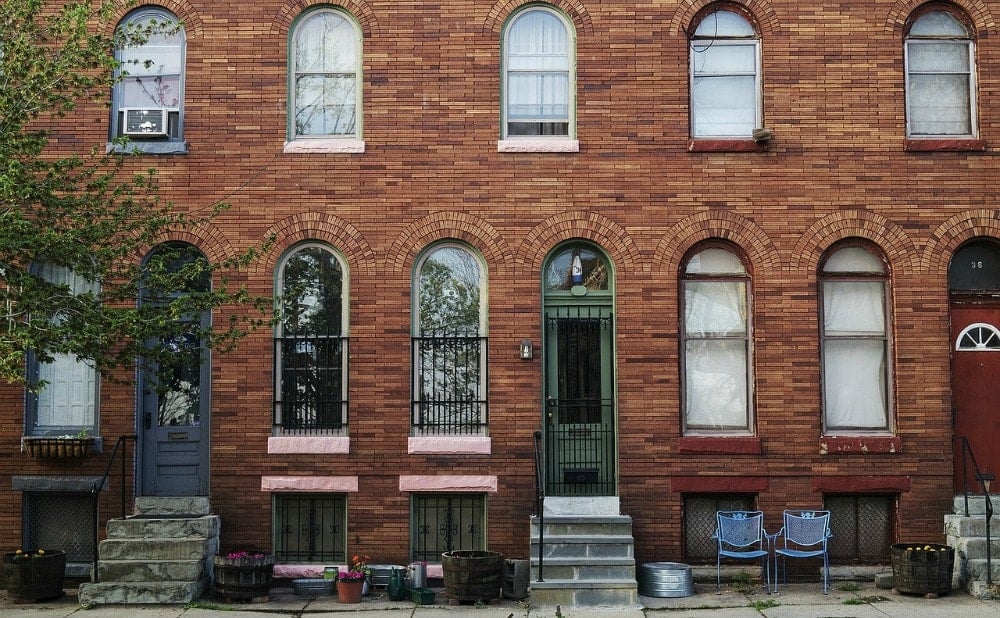
When people look for a rental property to live in, they might first look for a “nice” neighborhood.
In fact, you’ll probably never come across someone who says, “I want to live in the roughest neighborhood in the area!”
As a result, you might feel that purchasing a rental property in a not-so-nice neighborhood is a waste of money.
Don’t think that way. You’ll always find people who want to live in more affordable housing, and it’ll cost you a fraction of what you’d have to pay upfront for a middle- to high-income property.
Let’s delve a little further into what you need to know when you consider buying a low-income rental property in a “rough” neighborhood.
What Prince George’s County Landlords Should Know About Buying Low-income Rental Properties
Place-Based Investing
The differences between the properties you find in a rough neighborhood and those in a nice neighborhood can be pretty vast.
That’s because properties in neighborhoods across the country usually reflect the general income levels of their residents. And when you search for investments specifically based on such criteria, it’s called “place-based investing.”
While higher-income neighborhoods tend to have a single category of “nice” houses, low-income neighborhoods present a range of properties that are inexpensive for numerous reasons.
These range from uninhabitable homes to the upper level of low-income properties that are still inexpensive but can present a number of benefits to savvy investors who know an opportunity when they see one.
The Purchase Process
 Acquiring rental properties in low-income neighborhoods in Prince George’s County can be done in a number of ways – including the incredibly cheap foreclosure auction.
Acquiring rental properties in low-income neighborhoods in Prince George’s County can be done in a number of ways – including the incredibly cheap foreclosure auction.
Truth be told, regardless of what type of property market – whether booming, busting, or flat lining – there are always advantages to investing in a “rough” neighborhood.
For example, it’s possible to invest in a rental property for very little money that could rent for just a little cheaper than a property you had to pay full price for in a higher-income neighborhood. In that situation, you’d have fewer expenses and get a proportionally better return on your investment.
Think about it like this:
If you buy a house for $40,000 that rents for around $900 a month, you’ll make money quicker than if you paid $100,000 for a house that rents for $1,000 a month.
But, because low-income properties are often so cheap to purchase outright, you should probably make as large a down payment as possible.
Paying off your mortgage on these should take a lot less time than a home in a “nicer” neighborhood, so reduce the time you spend dealing with a mortgage from the start. The larger down payment you make, the sooner you can turn a profit on the property.
Also, while these properties are usually much cheaper than many others, keep in mind that you may have to spend some money rehabilitating them. Any time you acquire a rental property, include the costs of rehabilitation and other expenses in your considerations.
Dealing with Tenants
The biggest concern most Prince George’s County property owners have when it comes to low-income neighborhoods is that they attract low-income tenants.
Remember that low-income neighborhoods by definition feature people who aren’t capable of paying high rent, so you’ll always have to keep your rent rates on the low end. If you run into a financial issue and realize you have to raise the rent on your low-income tenants, you may end up with a lot of vacant properties.
However, low-income tenants don’t necessarily have to be more troublesome than middle-income people. You just need to screen every prospective renter properly so you don’t end up with a particularly problematic tenant.
The best way to handle interactions with this wide variety tenants and upkeep on your properties is to hire a rental property management company in Prince George’s County. They’ll handle all of your unwanted landlord duties and make sure your low-income property investments are manageable.
Keep an Eye Out for Red Flags

If you think you might go through with purchasing a low-income rental property, there are still some red flags you should look out for. These deal breakers are pretty simple, and should be known to any rental property investor regardless of what sort of housing he or she considers purchasing.
First off: if the seller can’t provide you with statistics or other hard facts, you should hit the road and never look back. Some of these include:
- Rental vs. vacancy rates
- Neighborhood allure
- Year-to-year year profits
- Crime rates
- Average income levels
- Employment rate
One thing investors need to know how to identify at once is something called a “trap house.” These properties harbor a higher-than-usual amount of the criminal element and can be identified by the frequent in-and-out traffic of people engaging in illegal activities.
Any time a trap house is nearby, there’s a good chance you’ll hear about it again in the future once you have tenants move in – and it won’t be pretty.
If property crime is known to be seriously high compared to other neighborhoods nearby, don’t make an investment there, plain and simple.
Tip: Check out this blog post for more information on preventing crime in your rental properties!
The damage to the property (as well as the potential for damage) also needs to be taken into careful consideration.
If the property is in decline or has been neglected for far too long, it might cost you more trouble than it’s worth in maintenance bills.
You should also avoid buying properties in neighborhoods that include severely damaged homes as a result of fire, flood, or otherwise. And, if there’s anything happening that you could reasonably expect to either destroy the property or force your tenants out within a few years, don’t risk it.
The low-income properties you should focus on are those nearest to schools, shopping centers, and highways.
The Bottom Line
Some rental property investors might never take the risk and put their money into low-income housing in rough neighborhoods. And they’re missing out.
Sure, there are poor investments and bad tenants in every bunch – even in middle- to high-income neighborhoods. But if you’re an aggressive investor dedicated to growing your business, you can’t be afraid to get your hands a little dirty.
Plus, there’s always the option of seeking the extra help of rental property managers in Prince George’s County.
The best course of action is to always do your research before making any major investment decision. If you come to a solid conclusion that you’ll turn a profit on a rental property in a rough neighborhood, why not go for it?
